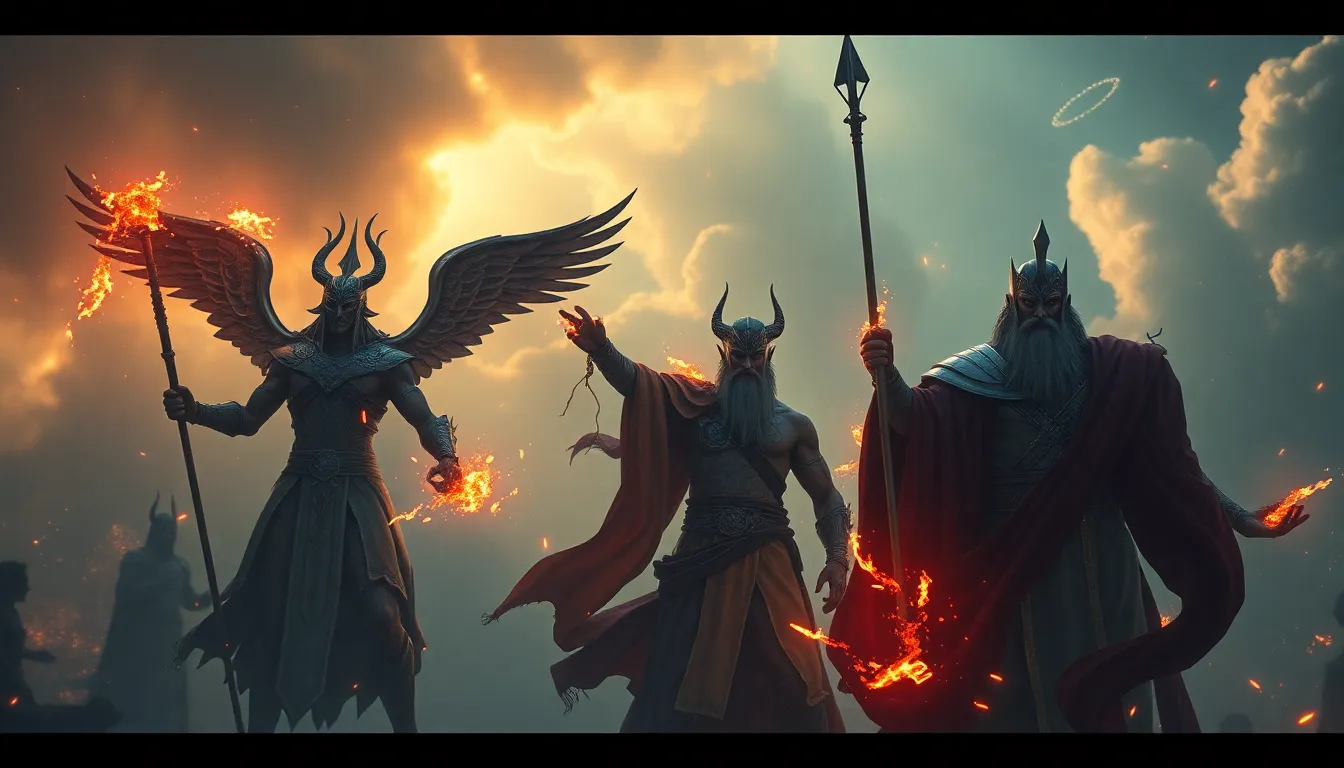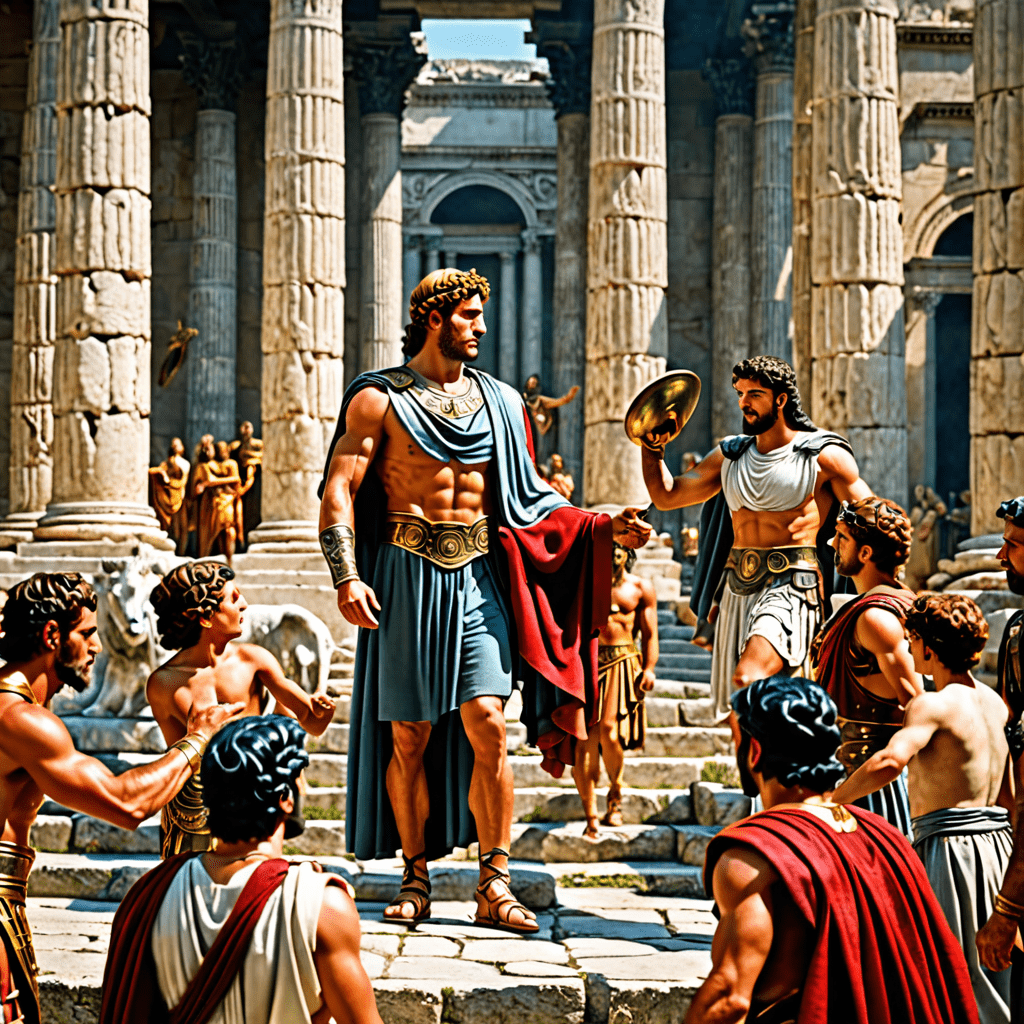The Mythical Influence of Cultural Heroes in Modern Society
I. Introduction
Cultural heroes are influential figures who embody the values, ideals, and aspirations of a society. They can be found in various forms, ranging from historical leaders to fictional characters who inspire generations. Throughout history, cultural heroes have played a significant role in shaping societal norms and motivating individuals to strive for greatness.
This article aims to explore the significance of cultural heroes in contemporary society, examining their evolution, characteristics, and impact on identity formation, media representation, social movements, and psychological appeal. Understanding the role of these figures can provide insight into their enduring influence in our modern world.
II. The Evolution of Cultural Heroes
The concept of cultural heroes is not a modern phenomenon but has roots in ancient societies where figures of myth and legend were revered. These figures often represented the ideals and values of their cultures, serving as models for behavior and morality.
As societies evolved, so did the nature of their heroes. The transition from mythological figures, such as Hercules or Odysseus, to modern-day heroes like Martin Luther King Jr. or Malala Yousafzai showcases a shift in what society values in its heroes.
- Ancient Societies: Heroes often possessed supernatural abilities or divine ancestry.
- Middle Ages: Knights and religious figures emerged as heroes, symbolizing chivalry and faith.
- Modern Era: Everyday individuals who exhibit extraordinary courage or talent are celebrated as heroes.
III. Characteristics of Modern Cultural Heroes
Modern cultural heroes share several defining traits that set them apart from traditional archetypes. These traits include:
- Relatability: Unlike mythological heroes, modern heroes often come from humble beginnings and face relatable struggles.
- Resilience: They demonstrate the ability to overcome obstacles and adversity.
- Morality: A strong sense of ethics and moral responsibility often characterizes their actions.
The role of morality and ethics in heroism cannot be overstated. While traditional heroes might have been seen as flawless, contemporary heroes often embody complexity, facing moral dilemmas that reflect real-world issues.
Moreover, the comparison between traditional and contemporary hero archetypes reveals a significant shift in societal values, with a growing appreciation for authenticity and vulnerability.
IV. The Impact of Cultural Heroes on Identity Formation
Cultural heroes play a crucial role in shaping both personal and collective identities. They serve as symbols of aspiration and motivation, particularly for younger generations who are in the process of forming their identities.
Heroes influence youth culture by:
- Providing role models for success and achievement.
- Encouraging the pursuit of dreams and ambitions.
- Instilling a sense of belonging and community through shared admiration.
Case studies of influential figures illustrate their impact:
- Activists: Figures like Greta Thunberg represent environmental activism and inspire youth engagement.
- Athletes: Sports icons like Serena Williams motivate personal perseverance and excellence.
- Artists: Creators like Lin-Manuel Miranda inspire creativity and cultural representation.
V. The Role of Media and Technology in Hero Construction
The advent of social media and digital technology has transformed the way cultural heroes are perceived and constructed. In the digital age, the impact of social media on hero representation is profound.
Media plays a vital role in shaping public perceptions of heroes through:
- Documentaries and biopics that highlight the lives of extraordinary individuals.
- News coverage that amplifies the voices of activists and change-makers.
- Artistic expressions that reinterpret hero narratives in modern contexts.
The phenomenon of the ‘celebrity hero’ also emerges in this landscape, where fame and influence often overshadow traditional heroic qualities, leading to a complex relationship between celebrity culture and genuine heroism.
VI. Cultural Heroes and Social Movements
Cultural heroes often act as catalysts for change, inspiring social movements and advocating for justice. Historical examples abound:
- Martin Luther King Jr.: A pivotal figure in the American civil rights movement.
- Rosa Parks: Symbol of resistance against racial segregation.
- Nelson Mandela: Icon of the fight against apartheid in South Africa.
These figures demonstrate the ongoing relevance of heroes in contemporary activism, where their legacies continue to inspire new generations to take up the mantle of change.
VII. The Psychological Appeal of Cultural Heroes
The allure of cultural heroes extends beyond mere admiration; it delves into the psychological realm. The concept of hero worship can significantly affect individuals, providing them with hope and inspiration.
Psychological theories explain this phenomenon:
- Social Identity Theory: Individuals often align themselves with heroes to enhance self-esteem and group identity.
- Heroism as a Coping Mechanism: Heroes provide a framework for individuals to understand adversity and resilience.
Furthermore, cultural heroes can have a positive impact on mental health, offering role models for overcoming personal struggles and fostering a sense of community.
VIII. Critiques of Cultural Heroes
While cultural heroes are often celebrated, there are critiques surrounding their idealization. The dangers include:
- Creating unrealistic expectations for individuals to live up to.
- Overlooking the complexity and flaws of heroic figures.
- Potential disillusionment when heroes fail to meet societal expectations.
This complexity of heroism reminds us that true heroes can have their flaws and controversies, prompting a more nuanced understanding of what it means to be heroic.
IX. Future Trajectories of Cultural Heroes
As society continues to evolve, so too will the concept of cultural heroes. Emerging heroes in the global landscape reflect the shifting values and priorities of modern life.
In the age of globalization, the potential evolution of heroism may include:
- Greater emphasis on diversity and inclusion in hero narratives.
- Heroes who champion environmental sustainability and social equity.
- Digital heroes emerging from online platforms who resonate with younger audiences.
Predictions for the role of cultural heroes suggest that they will continue to be instrumental in driving societal change and inspiring future generations.
X. Conclusion
In summary, cultural heroes hold significant influence in modern society, shaping identities, inspiring movements, and reflecting societal values. Understanding the dynamics of heroism is essential for recognizing the power these figures wield in motivating change and fostering hope.
As we navigate the complexities of the contemporary world, it becomes increasingly important to critically examine the figures we elevate as heroes, appreciating their contributions while acknowledging their imperfections. The enduring power of cultural heroes will continue to resonate, reminding us of the potential for greatness within us all.



